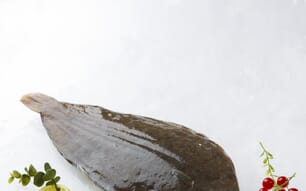
© Seafarm
The study, published by the European Market Observatory for Fisheries and Aquaculture Products (EUMOFA), aims to provide an overview of the farmed turbot value chain and the caviar market and establishes the status for the sector both prior to and during the Covid-19 pandemic. The study also gives insight into how stakeholders in countries producing farmed turbot and sturgeon caviar were affected by the pandemic and how they have addressed its impacts.
2020 saw consistent export volumes of turbot from the EU. The sharp decline in trade at the initial impact of the pandemic, during March and April 2020, was offset by the peak export seasons of summer and Christmas.
The EU experienced lower exports and imports of caviar in 2020. The sharpest decline in trade was experienced during March and April 2020, in part due to logistical problems and due to a notable decline in demand. The peak season of Christmas saw trade volumes approaching pre-pandemic levels. During the first half of 2021, trade in caviar seemed to exceed any previous records.

In Spain, the biggest producer of farmed turbot in the EU, the production stage was not affected by the crisis, as farmed turbot growth cycles follow strict scheduling, programmed to meet the peak seasons in demand (summer and Christmas), while the worst of the crisis occurred in spring season. However, Spanish production slightly decreased by 13 percent in 2020 compared to 2019.
Prior to the pandemic, both turbot and caviar were primarily sold to the HoReCa (hospitality) segment and other "premium" and "luxury" markets. As these traditional segments were closed during the lockdown periods or experienced logistic problems, retail became an important point of sale for producers.
Many producers of turbot and caviar innovated during the pandemic period, finding new ways to market and sell their products. Turbot producers partially shifted from fresh/live turbot to frozen and prepacked turbot, whereas caviar producers appealed to domestic consumers to purchase nationally produced caviar and focused more on online sales.




